ESE548 : The Class : Critic's Corner : Prologue |
||||||
 Critic's Choice: Two Ears Up
Critic's Choice: Two Ears Up 
Prologue
"Happily ever after time, guys and gals." If you've been missing Nine Inch Nails, Thriller,the number one MTV video of the Century or the lovable guys, the Ninja Turtles, your day is looking up. Hollywood meets reality. Want to know what it's like to be visually impaired? Watch "Patch of Blue." Want to know how it feels to be involved in war? Watch "Saving Private Ryan." Want to know what it's like to be a child genius? Watch "Little Man Tate," and to get the flavor of being a musical genius? Watch "Amadeus."
Wait a minute! Are you sure? These are great movies, in fact some of them are classics. They do offer a window into lives that we have not lived, but what about the view? Is Forrest Gump a great "feel good" flick? You bet. Is it a portrayal of someone who is developmentally delayed?
"No way! No How, Buddy buy!" . . . or at least that's what Jung, our archetypal bunny would say. Let's hand the microphone to Jung and get his opinion: "
On the Helen Keller story? Two Ears UP! On the Forrest Gump goody? Two loppin' ears in the tripping position."

Remember, you heard it here, first, folks!
An important part of being a great teacher is the ability to recognize how others are feeling. That second person perspective - wanting to know how another person feels, not having the script be "all about you," is a priceless gift to take into the classroom. A great way to expand that ability is to identify with the stories of people and share some of what it must be like to be Helen Keller, or Sylvia Plath or Christy Brown.
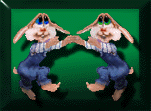
At the same time, these films and books may not be a fair portrayal. We know a tiny bit about what Christy Brown thinks because he chats about himself at the end of the movie "My Left Foot", and shares his determination to have his cerebral palsy take a backdrop instead of defining him, but watch the movie.
Do you think his Pap would agree with the way they portray him? In the spirit of the times and the social environment where he was born, I too, raise a Guinness to the successes achieved over great odds. I LOVE the film, adored the book, but think it still falls short of helping us understand what Christy and the times were about.
My Left Foot, the movie? It had me hoppin' mad about the Dad for half the movie...and I also recognized that this is a common portrayal of fathers. I got over jumping to conclusions about what a person with Cerebral Palsy could do. I leaped for joy that we now have Child Find and children need not go undiscovered and under served until school age. I wanted to high tail it to the local authorities and work out a way for Christy to get to school. I was a wee bunny bairn in Ireland and I know how crowded the buses can be). . . and I wanted to jump down the film maker's throat for the unnecessary use of crude language.
For me, this film is a social, economic and political commentary as well as the story of one lad and his vision of his family. For me, this story is a 'thumping' example of how far special education services have come in a few decades. It highlights what a cover-up we have been able to do by keeping special needs kids "under ground" while all the time there was a warren of activity just beneath the surface. And then I ask myself, how much need is still just below the surface, down the next rabbit hole?
![]()
I'm not going to beat around the bush! My mind hip hops to questions like -
- Would the story have been different in another country?
- Was it the times or the family?
- Is the story repeating itself today?
- Is it so much different than the mother who called me yesterday to question why the school district wants her daughter to utterly fail before they can test her for services?
- How many Christy's had five IQ points less and never got to school?
- How many times do I jump to conclusions because a person looks retarded - or doesn't look intellectually challenged?
- How can I make the system better for the next Christy?
- What kinds of services might the community have provided to help the father accept Christy?
- How much of the denial is a part of parenting a child with disabilities?
- What can I do to make NAU a better place for the Christys of the world?
- What can I change in myself to be more alert and accepting to all the Christys in my world?
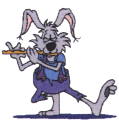
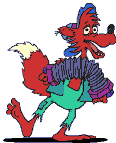
Parent Connection
Parents of youth with disabilities often DO see the kid first, THEIR kid. They want a teacher who cares about that youngster, who wants to understand, wants to make a difference. They also want a teacher to see their position, to care about how hard they are trying and how difficult it is for them.
Sometimes parents are hurt by the way people in the community react to their child. Of course, the prejudice and exclusion by those in the family, immediate and extended, can be as devastating as the feeling of being shunned in a church group or community. After all, we are sensitive. Use these experiences to be more attuned to the feelings and perspectives of parents. How do they portray them? Are they tooo saintly? Too victimized?
As the consummate critic, you will join Jung in looking at a number of important pieces to this intriguing peek into the lives of others. Remember, you are not judging the quality of the movie or the literary value of the book, but rather keeping your rabbit ears tuned to the quality of the portrayal. You will not give a detailed recounting of the plot, but rather, look for context, and its contribution to understanding the human condition.
You may also want to put timing to the test. By seeing the growth in our social conscience you will be able to applaud our progress rather than rage at some of the current indifference. You will feel more empowered to contribute to a better educational and social future and less likely to feel victimized by previous lack of insights. For example, in Rain Man, the older brother was institutionalized. Are we still doing that today? Were there other choices? How much did we know about autism and working with developmental disabilities compared to how much we know now? You can burrow into these stories and ferret out ["Oh no, don't be mixing that metaphor with the rabbits, sir!"] deeper meaning by keeping the context clear.
![]() Honing Observation Skills
Honing Observation Skills
Examining these films and reading books also provides a great opportunity to learn that what you focus on is often what you see. In observations, we tend to look for specific things...and not surprisingly, we often find what we are looking for. The author, in writing the story or developing the script you choose to examine, focused on a small piece of the entire life picture - digging into a small piece of the social context. The camera is trained on one small role and one image - a very minor part of any vista, a very tiny moment or series of remembered moments in a whole lifetime. When you "people watch," observe a child in a classroom, sit in a classroom and note the actions of a teacher broaden your thoughts, your angle of vision. Dig deeper. C. G. Jung would say - "Concepts have their dangers. A concept may limit or bias our observations so that we see things that do not exist or we do not see things that do exist. Do not become too attached to your concepts."
Like don't you get it dude?, you can't just see your little piece of the warren. Sit ever so still, not moving a whisker, and you won't just see Mr. McGregor in the garden, you'll see the cat on the top of the fence, and the dog patiently digging on the other side of your escape hatch.
By all means, keep your eye on the rabbit, but watch the hands of magician,
too.
Pulling something unrelated out of the hat? ![]() -- or is it?
-- or is it?
Want to learn more about our inimitable critic, Jung? He is named for a famous psychiatrist and philosopher, Carl Gustav Jung. He was a student of Freud, but went on to have his own theories and ideas about human nature and personality. The Keirsey test you took at the beginning of the class came from his paradigm for understanding human nature. Near the end of his life, he described himself thus, "I am first and foremost a physician and psychotherapist and all my psychological formulations are based on the experiences gained in the hard course of my daily professional work."
C. G. Jung believed that each of us uses a personal way to learn about our world. The four ways he described are thinking, feeling, sensing and intuiting. Some of us decide what is happening by processing sensations and others of us figure out what is happening through intuition. Some of us have a linear, thinking way of approaching what is happening, others of us sense things and then work to make sense of them.

Next we take what we feel, think, intuit, or sense and make decisions about what to do or how to respond based on what we think or how we feel. Jung called these two processes "Functions."
Jung is also famous for coming up with the ideas of extrovert or introvert. Our lop-eared Jung is an introvert. He needs very little external stimulation. Thinking - even thinking to himself, gets him all hopped up. He likes a few very close friends - and these are invited to pop into his warren at any time. He is just not the "party hearty bunny" he portrays. He loves to dig into a good story - book or flick, and tends to sip on a carrot and kava combo, not even answering the phone during the exciting parts.
Archetypes are also a big part of Jung's work He spoke of them as inherited images in the collective unconscious that shape our perceptions of the external world. Jung might really enjoy watching Hercules and Xena warrior on TV, since they are such good examples of myth and archetypes. Entertainment uses archetypes in most of the scripts and many of us live these scripts in our lives.
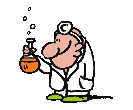
| Persona | Ego | Shadow | Anima/Animus | Self |
Conscious:
The contents of awareness - those things that occupy the focus of one's current attention.
Unconscious:
The totality of all psychic phenomena that lack the quality of consciousness; the receptacle of all lost memories and of all contents that are still too weak to become conscious.
Personal Unconscious:
Made up of contents which were once conscious but have disappeared from consciousness through being forgotten or repressed. Made up essentially of complexes.
Collective Unconscious:
The contents have never been in consciousness, and therefore have not been individually acquired, but owe their existence exclusively to heredity. Made up essentially of Archetypes..
Synchronicity:
A meaningful coincidence of outer and inner events that are not themselves causally connected.
Carl Jung's ideas about human nature. How about a biography?
Well, to quote the rabbit in Alice and Wonderland, "we're late, we're late, for a very important date," with the movie and book industry. I'm not certain that this will be a tea party, but I know we will be serving up some delicious notions. High tail it on over to the Intro reading for the next installment.
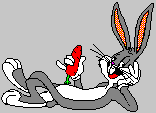
Once you have finished you should:
Go on to Textbook Reading
or
Go back to Critic's Corner - Two Ears Up
![]() E-mail
J'Anne Affeld at Janne.Affeld@nau.edu
E-mail
J'Anne Affeld at Janne.Affeld@nau.edu
Course developed by J'Anne
& Martha
Affeld
![]()
Copyright © 1999
Northern Arizona University
ALL RIGHTS RESERVED